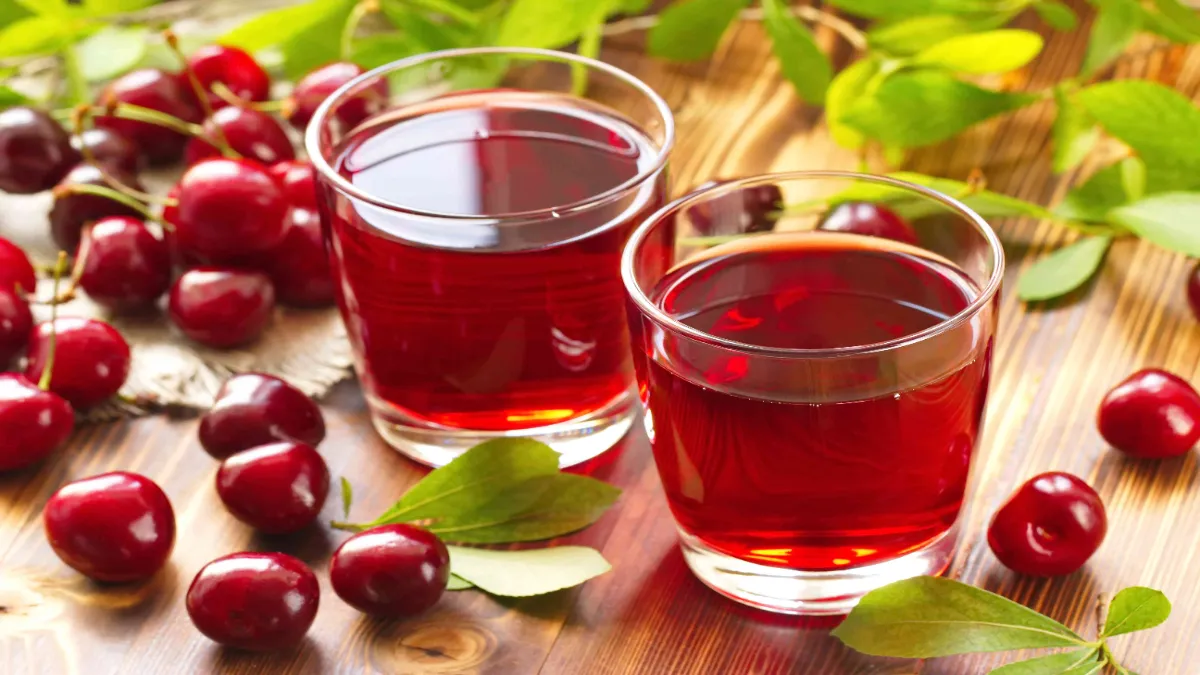In the quest for a good night’s sleep, many have sought natural remedies, and one that has piqued interest is cherry juice. The idea that cherry juice may induce sleepiness has gained popularity, leading to questions about its effectiveness and the science behind its potential sleep-promoting properties. In this article, we will explore the relationship between cherry juice and sleep, examining whether this sweet elixir holds the key to a restful night.
The Cherry Juice-Sleep Connection:
- Melatonin Content: Cherries, particularly tart cherries, are naturally rich in melatonin, a hormone that plays a crucial role in regulating sleep-wake cycles. Melatonin is often used as a supplement to address sleep-related issues, and the presence of this hormone in cherry juice has sparked interest in its potential sleep-inducing effects.
- Regulating Circadian Rhythms: Melatonin is produced by the pineal gland in response to darkness, signaling to the body that it is time to prepare for sleep. Consuming foods or beverages containing melatonin, such as cherry juice, may assist in regulating circadian rhythms and promoting a more consistent and restful sleep pattern.
- Anti-Inflammatory and Antioxidant Effects: Cherries also boast anti-inflammatory and antioxidant properties, which can positively impact overall health. Some proponents argue that these benefits may indirectly contribute to better sleep by reducing inflammation and promoting overall well-being.
Research on Cherry Juice and Sleep:
- Tart Cherry Juice Studies: Several studies have explored the potential sleep benefits of tart cherry juice. One notable study, published in the American Journal of Therapeutics, found that participants who consumed tart cherry juice experienced improvements in sleep duration and quality.
- Montmorency Cherry Juice: Montmorency cherries, a variety known for its tartness, have been the focus of various sleep-related studies. Research published in the European Journal of Nutrition suggested that Montmorency cherry juice may enhance sleep quality and duration, possibly due to its melatonin content.
Considerations and Recommendations:
- Timing and Dosage: While cherry juice may offer potential sleep benefits, the timing and dosage are crucial. Consuming cherry juice in the evening, approximately 30 minutes to an hour before bedtime, may align with the body’s natural melatonin production. As for dosage, moderation is key, as excessive consumption may lead to unwanted side effects.
- Individual Variability: It’s essential to recognize that individual responses to cherry juice, like any natural remedy, can vary. Factors such as personal tolerance, overall health, and specific sleep issues should be considered when assessing the effectiveness of cherry juice as a sleep aid.
- Consultation with Healthcare Professionals: Before incorporating cherry juice or any supplement into your sleep routine, it is advisable to consult with healthcare professionals. They can provide personalized guidance based on individual health conditions and considerations.
While cherry juice has shown promise in some studies as a potential aid for promoting sleep, it is crucial to approach these findings with a balanced perspective. Incorporating cherry juice into a well-rounded sleep hygiene routine, including consistent bedtime habits and a conducive sleep environment, may contribute to better sleep quality. However, individual preferences and responses vary, and consulting healthcare professionals is recommended for tailored advice on optimizing sleep patterns. Sweet dreams may be just a sip of cherry juice away, but understanding the nuanced relationship between cherries and sleep is key to unlocking their full potential.

